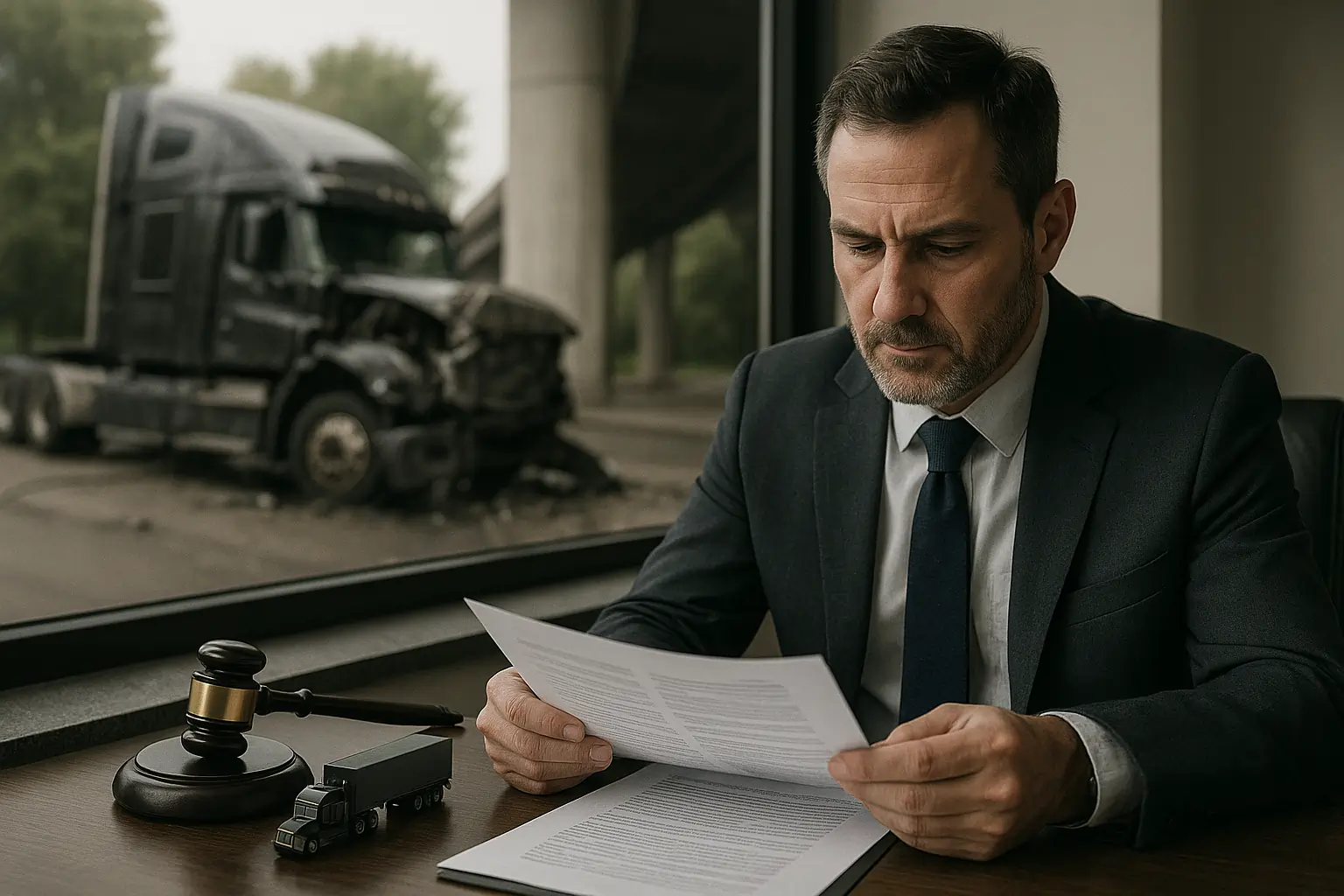Physical Address
304 North Cardinal St.
Dorchester Center, MA 02124
Physical Address
304 North Cardinal St.
Dorchester Center, MA 02124

Truck Accident Lawyer insight is essential for understanding how federal trucking laws shape liability and compensation after a crash. These laws aren’t just bureaucratic policies—they are powerful legal tools that establish standards for driver behavior, vehicle safety, and company accountability. If violated, they can become the foundation of a strong injury claim.
When a truck accident occurs, federal law becomes a framework to determine if the trucking company or driver violated their legal duties. These laws are enforced by the Federal Motor Carrier Safety Administration (FMCSA) and apply nationwide.
✅ Federal trucking laws impact:
🧑⚖️ How liability is assigned
📋 The type of evidence required
⚖️ The strength of your legal argument
💰 The value of your compensation claim
A Truck Accident Lawyer knows how to interpret and apply these regulations to maximize your case outcome.
Fatigue is one of the most common causes of truck accidents. To prevent this, FMCSA mandates Hours of Service rules, which limit how long drivers can operate without rest.
✅ Key rules include:
🕒 11-hour driving limit after 10 consecutive off-duty hours
🛌 30-minute rest break after 8 hours of driving
📆 60/70-hour limits over 7/8-day periods
📡 ELDs (Electronic Logging Devices) required to record driving time
If a driver violates these rules, they and their employer may be found negligent per se, automatically strengthening your legal claim.
Federal law requires systematic maintenance and inspection of every commercial truck. Vehicle malfunctions, such as brake failure or tire blowouts, can often be traced back to regulatory violations.
✅ Requirements include:
🛠 Daily pre-trip and post-trip inspections
🧾 Recordkeeping of repairs and safety checks
🔧 Specific standards for parts like brakes, steering, and lighting
If these records are missing or manipulated, a Truck Accident Lawyer can use that as evidence of negligence.
Trucking companies are legally required to hire and retain only qualified, safe, and sober drivers.
✅ Drivers must meet:
👨✈️ Commercial Driver’s License (CDL) standards
🧪 Drug and alcohol testing pre-employment and randomly
📋 Medical fitness certifications
🛣 Clean driving history and no disqualifying offenses
Failure to meet or enforce these standards can expose the company to vicarious liability.
Improperly loaded or unsecured cargo can cause catastrophic rollovers or load spills. FMCSA has strict rules about how cargo must be secured on flatbeds, tankers, and trailers.
✅ Rules include:
📦 Proper weight distribution
⛓ Use of certified tie-downs and restraints
📋 Cargo inspection checkpoints during transit
🔍 Special requirements for hazardous materials
Cargo violations often lead to multi-vehicle accidents and lawsuits that name both the driver and the loading company.
To operate legally, trucking companies must implement comprehensive testing programs as mandated by 49 CFR Part 382.
✅ Testing is required:
🧪 Pre-employment
📆 Randomly throughout the year
🚓 Immediately after a serious crash
🛑 When there’s reasonable suspicion
Refusal to test, or failure to act on a positive result, creates a direct path to liability.
Companies must retain extensive documentation to prove compliance with federal regulations. If records are missing, it raises red flags.
✅ Required documents include:
📄 Hours of Service logs
🛠 Maintenance and inspection reports
🧾 Employment and training files
📦 Cargo manifests and bills of lading
Your Truck Accident Lawyer uses subpoenas and legal discovery to obtain these documents and evaluate compliance.
Federal law violations not only indicate negligence—they serve as direct evidence in court. These cases often allow for punitive damages, especially if the violation was intentional or part of a repeated pattern.
✅ Outcomes of proven violations:
⚖ Shift in burden of proof
💵 Higher settlement value
🛑 Stronger pressure on the defense to settle
👨⚖️ Favorable jury perception
A knowledgeable lawyer turns each violation into a strategic advantage.
Federal trucking laws create a legal blueprint. Your lawyer follows this framework to:
✅ Build a powerful legal strategy:
📑 Compare accident data to FMCSA standards
📋 Prove the responsible party breached their duty of care.
🕵️♂️ Investigate corporate negligence
💼 Demand full damages including punitive compensation
Without this legal foundation, your claim may appear vague or weak—even if the crash was serious.
Federal trucking laws are not just rules—they are legal ammunition in the fight for justice after a commercial truck crash. A Truck Accident Lawyer leverages these laws to uncover violations, establish fault, and demand full compensation. Understanding how these laws work gives you an edge—and hiring a lawyer who understands them inside and out gives you power